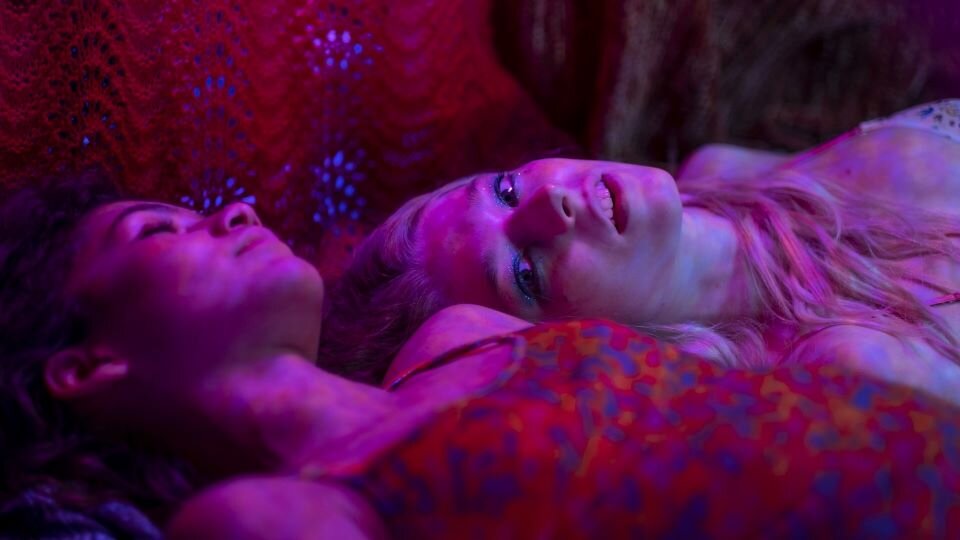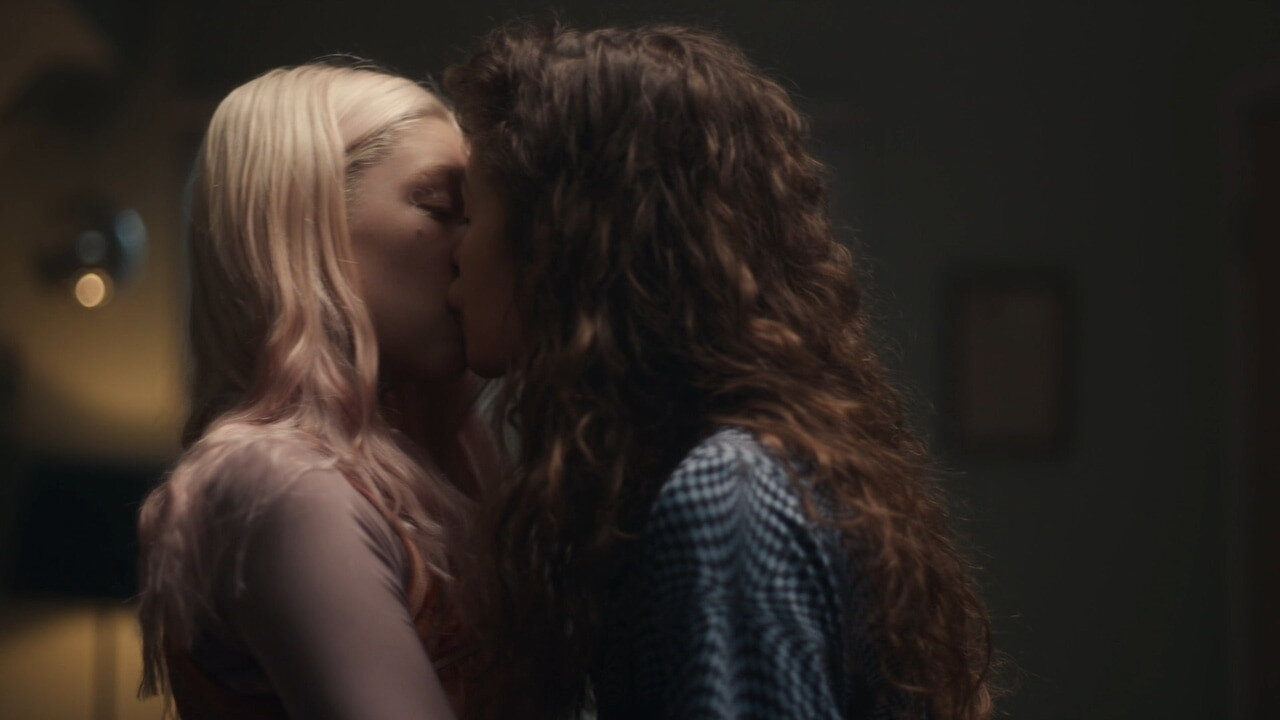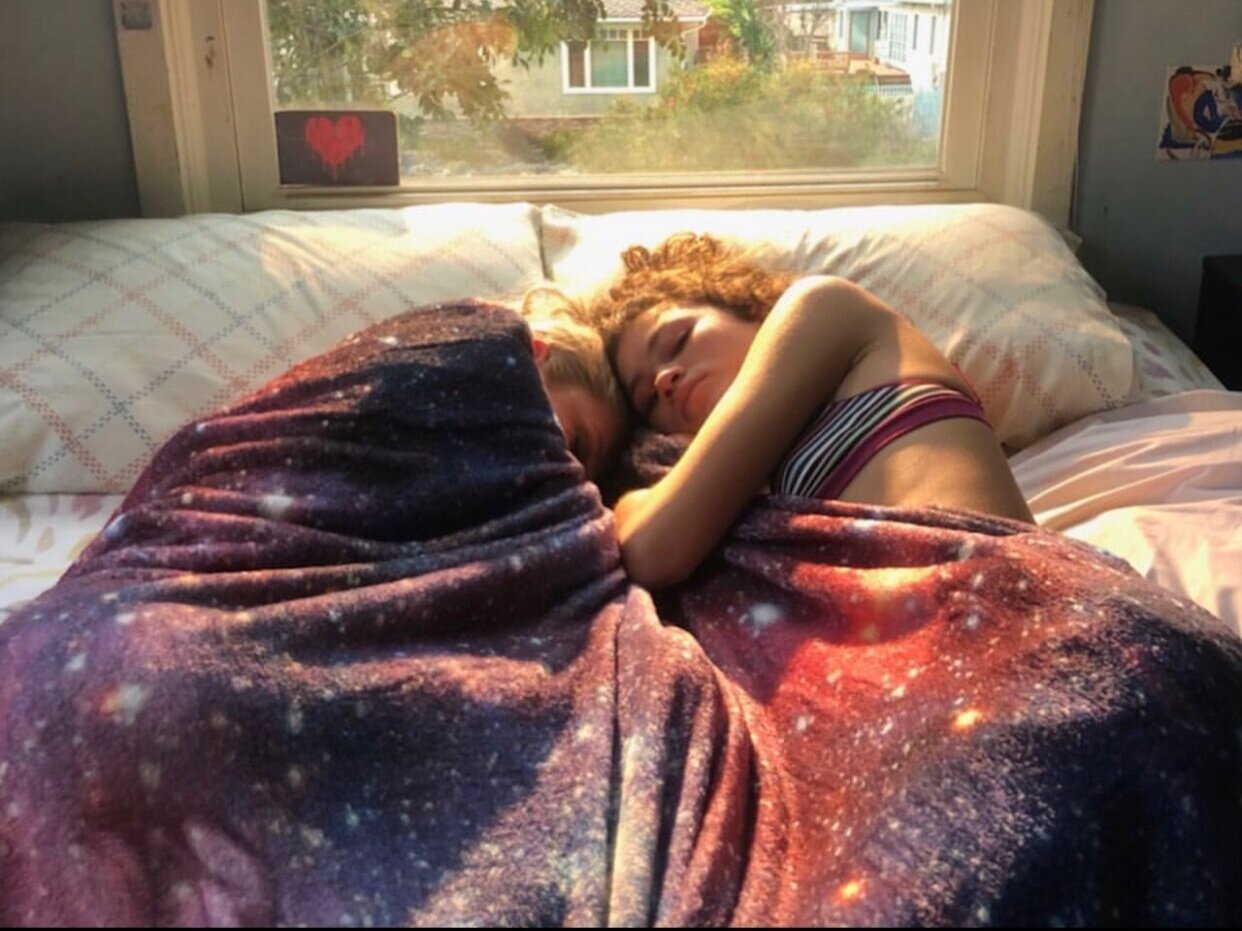Unpacking Part Two of the ‘Euphoria’ Special Episode
Part two of the Euphoria special episode was released through HBO Max on January 24th, and we were given yet another therapeutic-cinematic-masterpiece. This time around, we dove into the confusing yet beautiful mind of Jules (Hunter Schafer) through her therapy session after she ran away at the end of the first season.
Jules opened up about her relationships and shed light on her inner struggles as a transgender teen finding her true identity through femininity. Much like Rue’s episode, it was an emotional rollercoaster that left viewers with introspection whiplash.
This episode also filled in the holes of Jules’s backstory and current storyline from the original season one of Euphoria. Sam Levinson, writer and director of Euphoria shares during Enter Euphoria, “I like going back through the whole history of our show, but through Jules’s perspective.”
Schafer also mentions, "Because I do feel so deeply connected to her, she becomes a bit of a vehicle for me to express some of my personal stuff…” That’s right, Schafer collaborated with Levinson in writing the script—and it was phenomenal.
Source: Hunter’s Instagram
Traditionally, the sets of Euphoria are urban or suburban settings. With this episode, a new addition to the compelling sets of Euphoria was the gorgeous beach with the Pacific Ocean for a backdrop. This was refreshing for Levinson to include scenes at the ocean, as most of the scenes in Euphoria take place on temporary manmade sets. The ocean is far from temporary or made by man. The natural lighting and sounds of the wave crashing contrasts with the silence of the therapist’s office in such a formative manner; it made for great scenes.
Source: Youtube
While settings are an important factor in Euphoria, fashion is what this show is really known for. As a fan of Euphoria and fashion, Jules takes the cake with eclectic looks in the show. We’ve seen her rock a mix of textures and shiny bright hues. She always stepped out with a bold makeup look and fun colors in her blonde hair. However, in this episode we were shown a plain Jules. Her hair had no streaks of brown or pink, her face was bare, and her clothing lacked bright hues or funky textures. This change in appearance embodies the “I'm-really-going through-it" look, which many young people can relate to. This shows that Jules has been through a lot internally and externally, which was unveiled as the episode progressed.
If you haven't watched the episode yet, check it out and then come back for the debrief. Make sure to turn your captions on so you don’t miss any of the thought-provoking lines written and spoken by the lovely Hunter Schafer as Jules.
Now, let’s get into the nitty-gritty of Jules’s life. We can see how her character serves as representation of the identity crisis that many young people—trans or not—face today with their sexuality and gender expression.
We start off with Jules sitting awkwardly in a quiet office chatting with her new therapist (Lauren Weedman), which was paid for by her father (John Ales). If you have been to therapy, you know that the first session is always hard to open up. There’s an awkward pause after the friendly greetings once you get settled on the couch and the therapist sits in their chair.
Therapist: “So where do you want to start?”
Jules is sitting on this couch because she ran away from home and left Rue behind at the end of season one. The therapist asks right away why she left, and then the scene cuts to a shot of Jules’s eye with flashes of memories spent with Rue and moments with other Euphoria characters like Nate’s dad (If you remember that part...yikes). This all led up to her running away with a somber song playing over the flashback (“Liability” by Lorde).
Based on the change in light reflecting off her skin, it appears that Jules is watching her life like a movie. A tear builds up in the corner of her eye, adding dramatic effect. This, by far, is my favorite shot from Euphoria to date. It was simple, yet full of emotion and life. We quite literally saw Jules’s experience through her own eyes. Levinson did it again by making the audience tear up in the first two minutes.
Finding Femininity
Levinson makes a point to focus on Jules’s journey with her womanhood and unpack her self-criticizing nature, which all women can relate to in some capacity.
Jules: “Without the self criticism, I would be lost.”
Therapist: “Or free.”
Another amazing aspect of this scripted therapy session is the rawness of Jules’s words which only make this episode seem poetically unscripted. She shares a dialogue of the inner battle surrounding her whole identity as a woman, and around what men want:
Jules: “I feel like I’ve framed my entire womanhood around men, when, like, in reality I’m no longer interested in men, like philosophically. Like, like what men want. Like what men want is so boring and simple, and not creative, and like uh… I just look at myself and like, how the fuck did I spend my entire life building this? Like, like my body, and my personality, and like my soul, around what I think men desire?”
Even as a cisgender woman, I identified with this so much, and I’m sure others did too. We are taught by media that femininity is all about looking feminine, and that look is one that is created by men. Girls wear dresses and love the color pink, and girls must be skinny to seem smaller and beautiful. However, femininity is an expression of what one feels inside—it’s the person’s own definition of what being a woman feels like. In the first season, Jules was so focused on dating guys and dressing more like what she thought girls had to dress like as a means to conquer femininity.
Jules: “I feel like, my entire life, I’ve been trying to conquer femininity, and somewhere along the way, I feel like femininity conquered me.”
Through finding her femininity, she feared puberty as a young trans girl. Jules shares with the therapist that she wants to go off her hormone blockers, which previously kept her voice from dropping. She thought men would not find her desirable if she talked or looked like a man. Jules described puberty as this irreversible metamorphosis and that she did not want to end up like a man, because if she did, she would be stuck and would never reach femininity.
Jules: “Femininity would be this elusive, distant thing. You know?”
Gender expression and sexual identity are topics not often discussed in mainstream TV shows like this. The inclusion of tough conversations about one’s identity in this capacity are crucial in today’s society. So many young people struggle with finding and expressing themselves due to the common heteronormative lens that is put on TV shows and movies. We are shown there is only one way to be feminine, when it’s actually a spectrum. In the first season, we saw Euphoria reflect inclusion and fluidity, taking it a step further by diving into the inner struggles of self-acceptance and self-love with Jules.
Addiction affects those around the addicted
Through flashbacks, we are given a glimpse into Jules’s past with her mother. Jules’s mother was an addict and alcoholic. Fans had been unaware of the role Jules’s mother played in her life and how her mother’s addictions and behaviors contributed to her fears with Rue. Jules grew up dealing with her mom using drugs and drinking, lying about being clean, and leaving. In a way, Rue mirrored Jules’s mom, as Rue is an addict and exhibited similar behaviors.
The representation of addiction in this episode hones in on the negative effects addiction has on those surrounding the addict. We saw this a little bit with Rue’s younger sister in the first season. This alternate side of addiction shows how substance abuse can not only deeply affect the addict’s mental, physical, and emotional state, but in turn, it harms the loved ones around them. Can Jules ever let herself love Rue fully? Rue could leave like her mother did. Can Jules stand to be left again?
Dear Rules fans, Jules loves Rue.
We find out in this episode that Jules deeply and undoubtedly loves Rue. All the times she was distant from Rue in the first season were only because she had so much going on—not only externally, but internally as well. This deeper look into Jules was imperative for the storyline of the show to be more thoughtful and meaningful, and it only made “Rules” fans wanting them to end up together even more.
In Rue’s episode, we saw a scene of Rue and Jules living together in a NYC apartment. Some thought it was a glimpse into a potential future, when it was really the start of a nightmare which ended towards the end of this episode. We saw Jules come home to find the door locked and Rue unresponsive. This is Jules's worst fear—it's the worst fear of anyone who cares for someone struggling with addiction. An overdose ending the life of a loved one.
We don’t know what the second season of Euphoria will bring for Rue and Jules regarding their crazy love story, but we know they both need healing after this heavy self reflection. Will Rue continue using, or start her journey to becoming clean? Will Jules find a way to express femininity in a way that makes her feel like herself?
Only season two will tell. Unfortunately, HBO has not announced the air date of season two, but we can expect more info in the coming months. Until then, as viewers of these special episodes, we have some self-reflection and healing to do ourselves. Thank you to the whole Euphoria team for creating something truly special. We can't wait to see what happens next.











